HERBS IN HADITH
Part Three of Three: RAMADAN HERBS
By Karima Burns
As Ramadan approaches, we inevitably think about all of the special meals that we will eat during this holy month. After a day of fasting and worship, the Muslim or Muslimah’s reward is not only the sense of peace that he or she has gained, but also the special iftar that waits.
Hibiscus
Dates
.......................................................................................
prepared by, Nur Afifah Shuhardi
Part Three of Three: RAMADAN HERBS
By Karima Burns
As Ramadan approaches, we inevitably think about all of the special meals that we will eat during this holy month. After a day of fasting and worship, the Muslim or Muslimah’s reward is not only the sense of peace that he or she has gained, but also the special iftar that waits.
In many areas of the world such as the Middle East, India, and African countries, iftar meals are filled with traditional foods that can be traced to the time of the prophet (SAW). In other countries, the food may take on the flavor of the country one is in, such as a pizza iftar in America or a taco iftar in Mexico.
However, there are traditional gifts from nature that we should remember wherever we live, gifts that were used by Prophet Mohammed (SAW) in his life, and gifts that assist the fasting Muslim during Ramadan. Among these bounties are the hibiscus flower, dates, rosewater essence, and miswak.
Hibiscus
In the Middle East and Africa, hibiscus is readily served to guests, especially during Ramadan. However, for so many Ramadan traditions like the kunafa (a Ramadan sweet) and the musaharati (the man who wakes people for suhur), few look beyond the tradition for its benefit.

Although the sweet richness of kunafa can claim to nourish the spirit of the believer, the hibiscus flower can lay claim to many physical benefits for the fasting body. Hibiscus is, first of all, a pleasant tasting drink with astringent and, thus, thirst-quenching properties that may it quite useful when consumed during Ramadan. Secondly, a cup of hibiscus tea is 17% citric acid, and contains half as much vitamin C as an orange so it helps to strengthen the immune system. Hibiscus also has similar uses as cranberry juice in treating urinary tract infections, and is also useful for the heart and blood flow. Other properties in the herb help maintain the blood sugar balance in the body, another challenge one must overcome during fasting.
The traditional way to prepare hibiscus is to make a cold infusion. Take a quarter-cup of the herb and soak it in a pitcher of cold water in the refrigerator overnight. In the morning, strain out the hibiscus flowers and add honey to taste. Many people use sugar to sweeten their hibiscus; however, sugar leeches vitamins B and C from the body, can encourage urinary tract infections and counteracts most of the other benefits of the hibiscus as well. The best choice of sweeteners is to use about a teaspoon or more of the herb stevia, a green leafy herb from Paraguay that is sweet and lacks calories much like Nutra-sweet, but with none of the synthetic dangers. Stevia also has blood-sugar balancing properties and, thus, is the safest herb for diabetics.
Dates
Dates are another traditional item to ingest during the iftar. Muslims around the world, following the example of the Prophet (SAW), usually break their fast with dates.  The reason that they are so beneficial is that their natural sugar travels quickly to the liver, and is converted more quickly than any other nutrient into energy that the fasting body soaks up like a sponge. This is the healthiest way of breaking the fast as it eases the body into digesting. Dates contain protein, calcium, phosphorus, iron, potassium, vitamin A, and natural sodium. They also contain a high amount of dietary fiber, which makes them a good digestive aid. Dates are also said to protect the stomach and the intestines from parasites and bacterial infections, so they are an especially good beginning to a meal when traveling or eating at a restaurant.
The reason that they are so beneficial is that their natural sugar travels quickly to the liver, and is converted more quickly than any other nutrient into energy that the fasting body soaks up like a sponge. This is the healthiest way of breaking the fast as it eases the body into digesting. Dates contain protein, calcium, phosphorus, iron, potassium, vitamin A, and natural sodium. They also contain a high amount of dietary fiber, which makes them a good digestive aid. Dates are also said to protect the stomach and the intestines from parasites and bacterial infections, so they are an especially good beginning to a meal when traveling or eating at a restaurant.
 The reason that they are so beneficial is that their natural sugar travels quickly to the liver, and is converted more quickly than any other nutrient into energy that the fasting body soaks up like a sponge. This is the healthiest way of breaking the fast as it eases the body into digesting. Dates contain protein, calcium, phosphorus, iron, potassium, vitamin A, and natural sodium. They also contain a high amount of dietary fiber, which makes them a good digestive aid. Dates are also said to protect the stomach and the intestines from parasites and bacterial infections, so they are an especially good beginning to a meal when traveling or eating at a restaurant.
The reason that they are so beneficial is that their natural sugar travels quickly to the liver, and is converted more quickly than any other nutrient into energy that the fasting body soaks up like a sponge. This is the healthiest way of breaking the fast as it eases the body into digesting. Dates contain protein, calcium, phosphorus, iron, potassium, vitamin A, and natural sodium. They also contain a high amount of dietary fiber, which makes them a good digestive aid. Dates are also said to protect the stomach and the intestines from parasites and bacterial infections, so they are an especially good beginning to a meal when traveling or eating at a restaurant.Rosewater
After the evening meal is finished, Muslims often go straight to make the Tarawih prayers, to which they often like to wear a pure essence of some sort.  Perfume is a food for the soul and the spirit, much like dates and hibiscus are foods for the body. During Ramadan, Muslims need many foods to keep them strong in their religious duties. In one of the best known Hadith of the Prophet Muhammad (SAW), he was quoted as saying, "There are three things in your world that are made to attract my affection: women, perfume, and then my ultimate fondness is securely fixed on prayers."
Perfume is a food for the soul and the spirit, much like dates and hibiscus are foods for the body. During Ramadan, Muslims need many foods to keep them strong in their religious duties. In one of the best known Hadith of the Prophet Muhammad (SAW), he was quoted as saying, "There are three things in your world that are made to attract my affection: women, perfume, and then my ultimate fondness is securely fixed on prayers."
 Perfume is a food for the soul and the spirit, much like dates and hibiscus are foods for the body. During Ramadan, Muslims need many foods to keep them strong in their religious duties. In one of the best known Hadith of the Prophet Muhammad (SAW), he was quoted as saying, "There are three things in your world that are made to attract my affection: women, perfume, and then my ultimate fondness is securely fixed on prayers."
Perfume is a food for the soul and the spirit, much like dates and hibiscus are foods for the body. During Ramadan, Muslims need many foods to keep them strong in their religious duties. In one of the best known Hadith of the Prophet Muhammad (SAW), he was quoted as saying, "There are three things in your world that are made to attract my affection: women, perfume, and then my ultimate fondness is securely fixed on prayers."Rose essence or rosewater is one of the most popular essences for men and women to wear during this time. Besides the fact that it is one of the most heavenly scents, rose essence has a number of aromatherapy benefits as well. Valerie Worwood, in her book The Complete Book of Aromatherapy, notes that rose essence is a powerful anti-depressant, is uplifting, aids in digestion, and soothes frayed nerves during the stressful days of fasting. These benefits can all be enjoyed just by sprinkling some of the water or essence on your body, adding a few drops to your bathwater, or burning the scent in an incense burner in your home.
Miswak
Rosewater is also the preferred soak for miswak which, taken from the branches of a miswak tree, is an answer to every Muslim who has asked, "Is it okay to brush my teeth while fasting?"
This question often arises in modern times because of western tooth brushing methods that  require a mouthful of water and often involve delicious tasting toothpaste. Miswak, on the other hand, is simply soaked until the brushing end is soft, and then gently stroked over the teeth. Imam Al-Bukhari narrated that Abdullah bin Omar brushed his teeth with a miswak morning and evening while fasting.
require a mouthful of water and often involve delicious tasting toothpaste. Miswak, on the other hand, is simply soaked until the brushing end is soft, and then gently stroked over the teeth. Imam Al-Bukhari narrated that Abdullah bin Omar brushed his teeth with a miswak morning and evening while fasting.
 require a mouthful of water and often involve delicious tasting toothpaste. Miswak, on the other hand, is simply soaked until the brushing end is soft, and then gently stroked over the teeth. Imam Al-Bukhari narrated that Abdullah bin Omar brushed his teeth with a miswak morning and evening while fasting.
require a mouthful of water and often involve delicious tasting toothpaste. Miswak, on the other hand, is simply soaked until the brushing end is soft, and then gently stroked over the teeth. Imam Al-Bukhari narrated that Abdullah bin Omar brushed his teeth with a miswak morning and evening while fasting.A fasting person, in fact, is in more need of tooth brushing than the non-fasting person since vapors from the empty stomach tend to bind to the teeth and gums. Miswak helps to keep the breath fresh and pure. Among the other benefits of using miswak are that it clears the brain, generates a sense of well-being, remedies the stomach for the next meal, embraces the prophetic tradition, adds to ones merit, pleases Allah, and delights the angels.
During this Ramadan, remember the gifts of nature for they are really gifts from Allah to us to ease us through our fasts. The verse Al-Asharh (Surah 94:5) that we recite during Tarawih prayers says, " So, verily with every difficulty there is relief."
.......................................................................................
Karima Burns, MH, ND has a Doctorate in Naturopathy and a Masters in Herbal Healing. She has studied natural healing for 12 years, published a natural healing newsletter for 4 years, and writes extensively on natural healing and herbs. Sister Karima became interested in natural healing after ending her personal lifelong struggle with asthma, allergies, chronic ear infections, depression, hypoglycemia, fatigue and panic attacks with herbs and natural therapies.
prepared by, Nur Afifah Shuhardi
Subscribe to:
Post Comments (Atom)





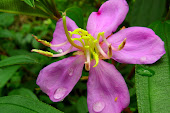





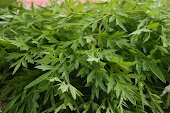
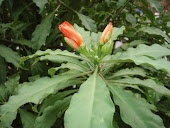
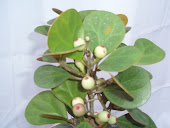



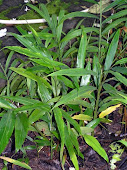
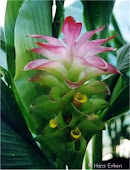

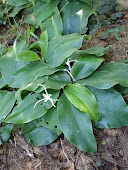
Post a Comment